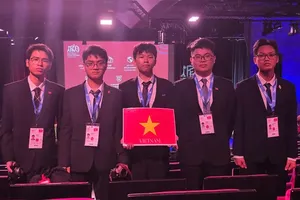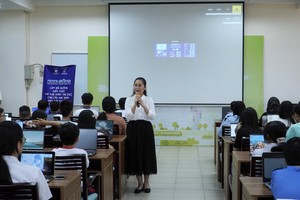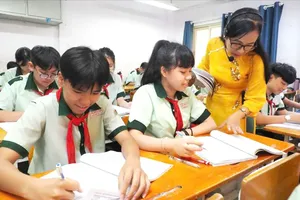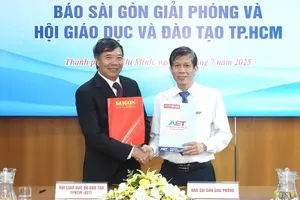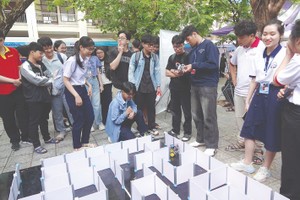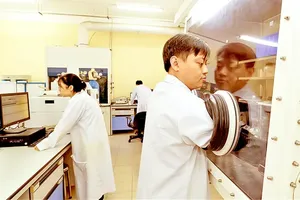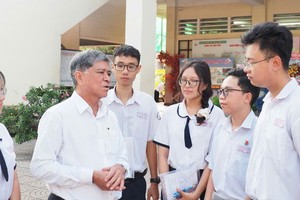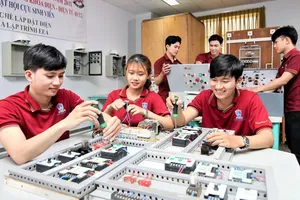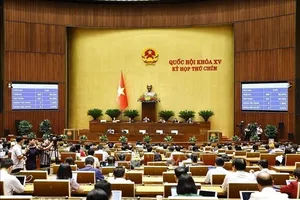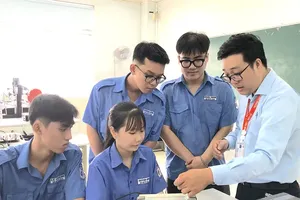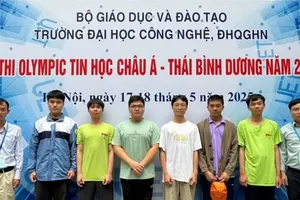Scientists and education experts have expressed concern over a project launched by the Ministry of Education and Training in 2000 titled “Training state officials overseas by state budget” (Project 322), as it is proving unfeasible compromising education standards.
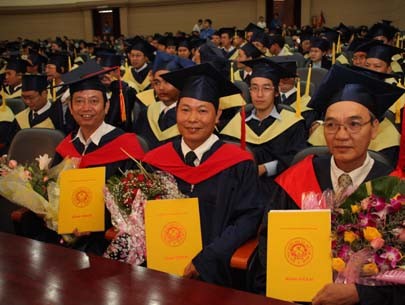
The Ministry of Education and Training (MoET) originally targeted to train 20,000 individuals at bachelor, master and doctorate levels, and cooperate with overseas institutions in offering training courses.
Under Project 322, around 3,000 students have been chosen to study in the Netherlands, Russia, Belgium, Japan, Korea and New Zealand for nine years.
The average annual tuition fee for each student is around US$25,000, covered by scholarships.
Yet 18 students have returned home over the years before completing their programs, as they were unable to keep up academically. Of the 18 students who did not finish, 13 were studying in Russia. Vietnamese education experts say the number of weak students allowed into the study-abroad program is too high and reflects problems with the selection process.
Associate Professor Nguyen Hoi Nghia who serves as the director of the Department for Academic Affairs of the Vietnam National University – Ho Chi Minh City (VNU HCM), said the student selection procedure, training and graduation process needs be re-considered.
Previously, candidates for study-abroad scholarships had to sit an examination, but since 2009, MoET has instead selected students based on nominations by schools. Critics say the new procedure is problematic as it allows students to be admitted into programs of which they are not academically capable.
MoET will allocate around 1,000 scholarships in 2010 including 700 scholarships for Ph.D.s, 200 for masters and 30 for research projects. Ninety percent of scholarships are provided to educational institutions, hi-tech centers and national labs in a bid to train more personnel for Vietnamese universities and colleges.
But in the endeavor to turn out a high number of doctoral students, the quality of student training and standards has suffered in Vietnam.
A well-known professor, who wished to remain anonymous, said training quality in the country is weak and that Ph.D. holders do not perform to the same standards as their international counterparts. Much of the research conducted in Vietnam is impractical or redundant, and several doctoral students don’t know how to write articles that meet international standards, he said.
Professor Pham Phu of the Ho Chi Minh City Polytechnic University expressed worry over Vietnam’s 2009-2020 education development strategy draft, which aims to have 450 students enrolled in training programs per 10,000 citizens.
The plan also calls for one lecturer per 20 students, which means that by 2020, Vietnam must have 225,000 lecturers.
Furthermore, the country targets to enroll 15 percent of doctoral students in three-year-program colleges and 30 percent in four-to-five-year program universities. Under the draft, 45,000 doctors are hoped to be trained within the next 12 years.
The largest higher education institution in the country, VNU HCM, meanwhile, only turned out 37 doctors in 2008. In 2001, VNU HCM granted just three doctoral degrees and said the number of lecturers who hold Ph.D.s has dropped continuously over the past six years. In 2000, 14.17 percent of lecturers held doctorate degrees, while in 2006, the figure dropped to just 10.99 percent.
Experts say, therefore, that the large numbers of degree holders targeted under Project 322 are unreasonable, and that striving for such a goal will inevitably lead to training quality taking a backseat to quantity.
Professor Phu said in other countries, most doctors continue their research throughout their careers. In Vietnam, however, once students have obtained a Ph.D., they most often go on to hold management positions at State training centers or companies and are to busy to contribute further research.
In addition, some provinces in Vietnam favor those with doctoral degrees to hold administrative positions with the hope that their higher education will help the province develop certain fields such as economics and education.
Related article:
Dispute breaks out during student’s thesis defense
Vietnam’s Ph.D. Programs fundamentally flawed: experts

